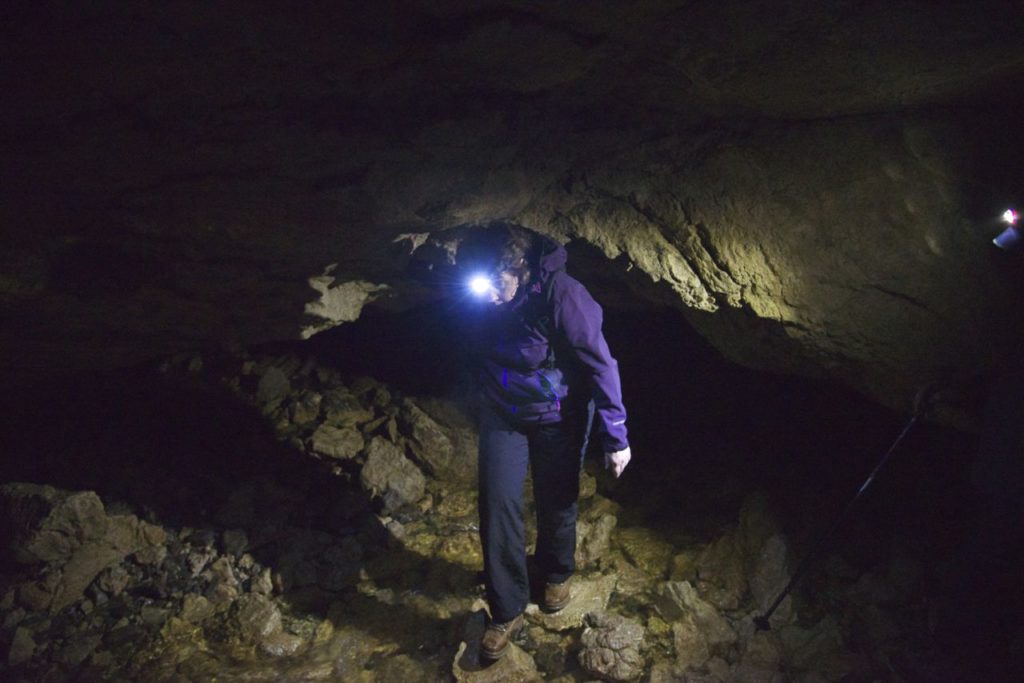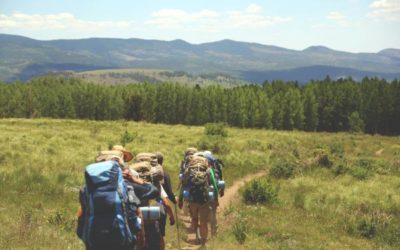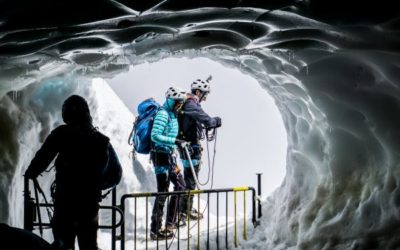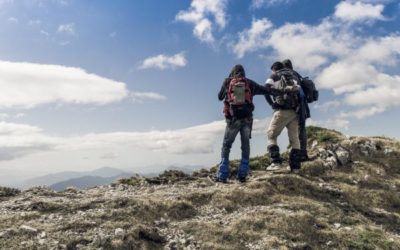Guest Blogger: Austin Souto
For the wilderness program at Sky Ranch Ute Trail where I work, there is perhaps no phrase that better encapsulates our overall philosophy when it comes to our recruitment and hiring of wilderness guides.
“We look for ministers before mountaineers.”
WHAT DOES A RESUME REALLY TELL YOU ABOUT AN OUTDOOR LEADER?
Hard skills are important. Having a staff that can consistently keep participants healthy an safe is of the utmost importance. Our guide staff goes through 3 weeks of skills training, including certifying as WFAs, before they can lead any groups. Yet choosing outdoor leaders for your program needs to prioritize the soft skills. Our choice as an organization to value soft skills above hard skills in hiring though comes down to the question of which it is easier to teach a person; how to manage a group and execute activities safely in an adventure context or how to love people the way Jesus does?
Ironically, it is often the case that the worst kind of wilderness guide is actually the one who comes in with the most impressive outdoor resume. Just as a great athlete does not always make a great coach, an outdoor enthusiast does not always make a great outdoor professional. This should not surprise us either. After all, it was Jesus himself who chose, not the rabbis or the Pharisees to be his disciples, but the fishermen and the tax collectors. He passed over the religious professionals in favor of those who were simply willing to drop all they were doing and follow him. Jesus knew that the condition of the heart was more important than the knowledge of the mind. He looked for the best raw material, and then spent the necessary time doing the training and formation.
Of course, an applicant with many certifications and hours of logged time in the back country is not necessarily a bad thing. In an ideal setting, it would be the best thing. If you are so lucky as to find someone who possesses the heart of Christ and the skills of Paul Petzoldt then count your blessings and hire them! If not though, hire the minister, and then train the mountaineer.
DO YOU TEACH IN THE OUTDOORS? OR DO YOU USE THE OUTDOORS TO TEACH?
It is very easy to fall into the rut of using traditional educational methods, even in the wilderness. It is what we experience in most of the areas of our life, from the Sunday morning sermon or Bible study to the weekdays spent in the school classroom. However, these are not the methods that best serve outdoor ministry. Instead, we must become well-versed in models of teaching and formation centered around experience and dialog. Whether we are looking to such modern examples of John Dewey, Paulo Freire, Parker Palmer, or Jane Vella or looking back to the example of Jesus, a strong understanding of how experience and learning go hand in hand will greatly increase our own competence as outdoor leaders and facilitators. In this way, we will ensure that our groups are receiving the most benefit out of the unique opportunity that being in the wilderness affords them to learn about themselves, each other, and God.
RELATED: 3 REASONS WHY GREAT LEADERS RUN TO THE HILLS FOR GROWTH
4 QUESTIONS TO HELP YOU IMPROVE YOUR OUTDOOR FACILITATION SKILLS
1) What is the content that you wish to communicate, and will it be relevant to the planned experience that my group will have?
2) Am I actively using my group’s present context and experiences to facilitate learning and growth? (think teachable moments, debriefs, etc.)
3) Am I facilitating in a way that puts me and what I know at the front and center of the discussion or am I creating space for my group (including myself) to reflect on a topic as equals, out of each person’s unique experience?
4) Am I actively taking time to listen to the direction of the Holy Spirit as He works on the trip and in the group or am I trying to push for my own agenda and goals?
RELATED: Christian Outdoor Leadership Curriculum
GUEST BLOGGER | AUSTIN SOUTO
Austin Souto is the Wilderness Program Manager for Sky Ranch at Ute Trail in Powderhorn, CO. For more information about the Wilderness Program or to contact Austin, please e-mail wilderness@skyranch.org or visit their website.




